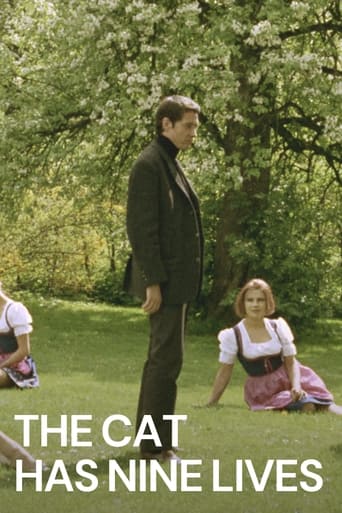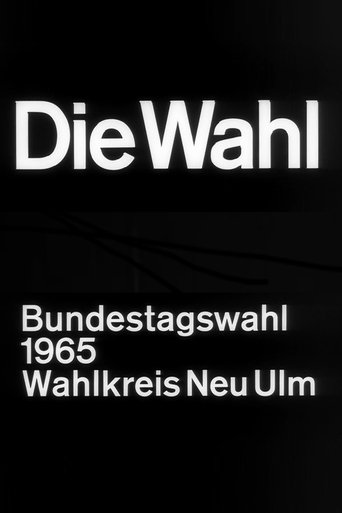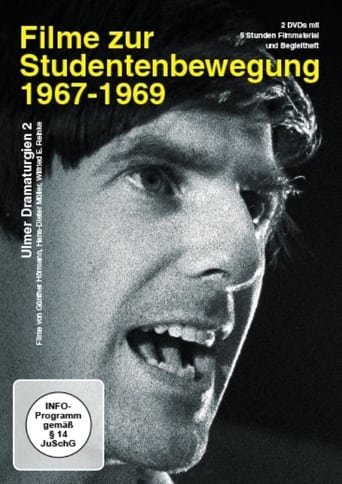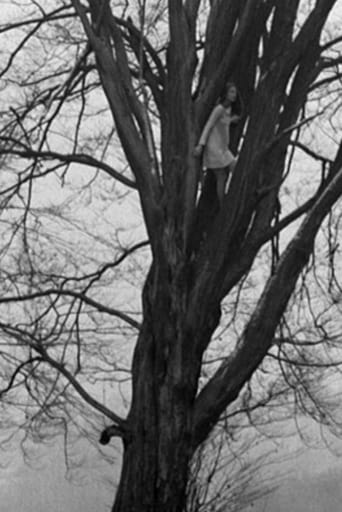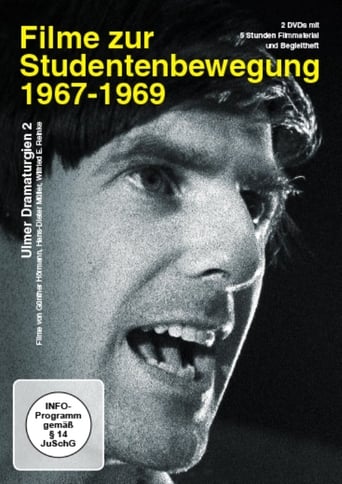Hochschule für Gestaltung Ulm
The Cat Has Nine Lives 1968
Katharina and Anne go on trips, visit cafés, acquaintances and parties. In doing so, they explore the chances of female emancipation in a male-dominated society. Katharina strives for a life without sentimental compulsion. She believes that she has succeeded, and therefore looks at the beloved friend Anne compassionate, as it can be good. Anne is learning the left jargon. But it is sheer helplessness. She says it's political commitment that she does not trust her friend Katharina, so Anne smiles as well.
Die Wahl - Bundestagswahl 1965, Wahlkreis Neu-Ulm 1966
Election campaign for the parliamentary elections for the Bundestag in 1965 in the town of Neu-Ulm, Germany.
Miniaturen Teil 1 1965
Omnibus film with 13 short films by students of the HfG Ulm
Miniaturen Teil 2 1965
Omnibus film with 11 short films directed by students of the HfG Ulm
Antigone 1964
The classical Epic is reduced to the bare bones of the action. Despite the seven minutes of turbulent action, it is actually a slow film: in the war against Kreon, one of Antigone's brothers fights for the king, one against him. Both die. One of them is buried; the other is left lying on the street. Antigone goes against the king's wishes and wants to bury her brother. As a punishment Antigone is buried alive behind a wall. Her fiancé, Haimon dies, overcome with grief. Haiman's mother, Eurydike, is so upset by his death that she hangs herself. And just as the old soothsayer predicted, the king himself finds no happiness from all this death: he is killed. That makes 6 deaths, even though the war is over.
Django und die Tradition - Politisches Protokoll der DK 1968
In late 1968, the last SDS delegates' conference was held in Hanover. It had already been postponed by the Berlin Action Council in Frankfurt in September after the famous tomato throwing by the women. Now attempts are made once again to develop common criteria for the supra-regional context of the SDS, for an SDS whose organizational structures have been overturned by the revolt itself. Factions emerge, the Frankfurt Women's Council distributes its leaflet "Free the socialist eminences from their bourgeois tails", the wave of lawsuits looms. Joscha Schmierer as Django criticizes the student "shitty milieu that is out to satisfy immediate needs. Christian Semler calls for a strong central office. "Of course, I don't have a central office in mind, like the German Communist Party had a central office before '33". After all, the anti-authoritarians in the North region are attacking.
Auf der Suche nach dem Glück 1967
In 8 miniatures, the search for happiness is approached from a different angle. Can you have a guinea pig as a husband? Can horses survive on Venus? How do you live with an alien woman?
Django und die Tradition - Diskussion der Justizkampagne 1968
In late 1968, the last SDS delegates' conference was held in Hanover. It had already been postponed by the Berlin Action Council in Frankfurt in September after the famous tomato throwing by the women. Now attempts are made once again to develop common criteria for the supra-regional context of the SDS, for an SDS whose organizational structures have been overturned by the revolt itself. Factions emerge, the Frankfurt Women's Council distributes its leaflet "Free the socialist eminences from their bourgeois tails", the wave of lawsuits looms. Joscha Schmierer as Django criticizes the student "shitty milieu that is out to satisfy immediate needs. Christian Semler calls for a strong central office. "Of course, I don't have a central office in mind, like the German Communist Party had a central office before '33". After all, the anti-authoritarians in the North region are attacking.
Ruhestörung 1967
The film chronicles the beginning of the student protest following the death of student Benno Ohnesorg in Berlin in June of 1967.
Was tun? 1968
The film consists of four parts: Part 1 shows the founding of a new working group of the "Critical University" at the FU Berlin. Participants are students, workers, pupils, assistants and a university lecturer. The working group is founded to study the problems of educational advertising. Part 2 shows the campaign "Expropriate Springer"; the university administration of the FU Berlin refuses the rooms. The Springer Hearing takes place after all. Part 3 describes the Vietnam Congress, shows Dutschke's speech and a first approach to a counter-demonstration against the students. Part 4 answers Wolfgang Lefevre's questions about the next goals of the SDS.
Freundschaftswoche 1964
A documentary portrait of the German-American Friendship Week in Ulm, Germany.
Die Grundordnungsversammlung der Universität Freiburg - Krise 1969
The conflict comes to a head; student Melville proposes that the Basic Regulations Assembly should "like Lysistrata" refuse to deal with the Ministry of Culture and not adopt any Basic Regulations until the Dahrendorf Plan is off the table. The students propose that no basic regulations be passed until the government has improved the Higher Education Act. The motion is rejected by 10:25 votes. Riots interrupt the meeting.
Zur Sache Fleisch 1966
The process of slaughtering cattle is shown and explained. This taboo subject is to be solved objectively with this work.
Des Lebens Wunderhorn 1966
The portrait of a young bakery worker in Swabia. A vague desire for something else lurks between her sentences and the images of her everyday life.
Ansichten einer Stadt 1964
A portrait of the German city of Ulm and it's social activities, fassades, court building. Also about the role of the district court during National Socialism.
Fundevogel 1967
Fragments of fairy tales alternate with observations of children. Documentary and staged sequences are combined. There is no break and no contrast between reality, the children's behavior and the imagination; they merge into one another.
Regionalzeitung 1967
The creation of news is illustrated by the example of the "Schwäbischen Donauzeitung". The selection of editors, the work on the typewriter and the printing process are shown.
Studenten in Freiburg, Wintersemester 1968/69 1969
In seven episodes, the biographies and study motivations of six students in higher semesters and four students in their first semester are presented.

